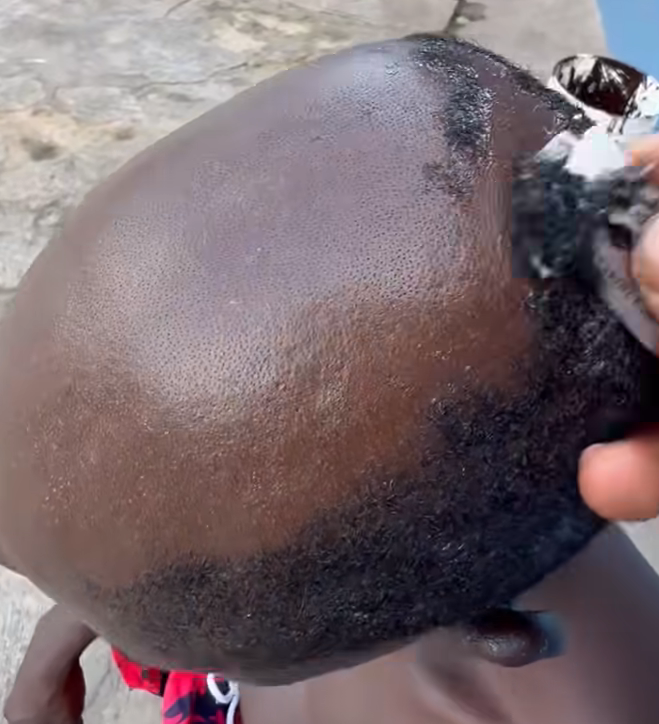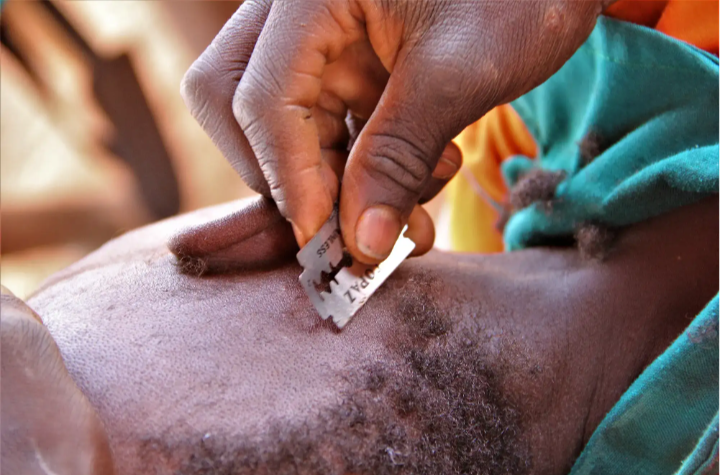
Luhya and luo community in kenya are said to be holding some of it’s traditional beliefs. Among these enduring customs is a little-known but deeply symbolic ritual when a man’s wife dies and is buried, he must be shaved completely bald to mark the final separation between the living and the dead.
For the people of western kenya, this is not merely a ritual of grief but one of transition, healing, and respect for ancestral beliefs. “When a man’s wife dies, his spirit is said to remain bound to hers until the final act of shaving is performed,” explains Mzee wanyonyi, 82, a village elder and custodian of traditional rites. “The hair represents the old life, the union. Removing it is how we release the soul and allow the man to begin life anew.”

The practice, often carried out within a few days of the burial, It involves the widower being seated on a traditional stool in the center of his homestead. Surrounded by male relatives and elders, his head is shaved clean using a razor blade or a traditional knife which is a solemn act often performed in silence.

For Samuel maloba, 47, who lost his wife Mary Wanjiku last year, the ritual was a turning point in his mourning. “At first I didn’t understand it. I thought it was just an old tradition. But when they shaved me, I felt something shift inside. It was like closing a chapter,” he recalls quietly, his eyes clouding with emotion. “It was hurting but it helped.”
The ceremony is not just about the physical act of shaving. It is often accompanied by prayers, songs, and offerings to the ancestors, asking for protection and guidance for the widower as he re-enters the world without his partner.According to Mama Terry wanjala, a respected community herbalist and spiritual advisor, the ritual also protects the man from misfortune. “If a man does not shave, his wife’s spirit may linger. It is believed that this can bring sickness or confusion,” she says. “Some men gets ill or have nightmares until the ceremony is done.” Although not everyone in luhya agrees with the practice. With modernization and urban migration, younger generations are beginning to question its relevance. “I think grief is personal. You don’t need to shave your head to show you’ve moved on,” argues David Naliaka, 29, a schoolteacher who has lived both in the village and the city. “We should respect traditions, but also allow people to grieve in their own way.”
As time moves forward, the luhya community stands at a crossroads, balancing the wisdom of its past with the questions of its future. But for now, when a woman passes on, the clean-shaven head of her husband remains a quiet but powerful symbol of love, loss, and the courage to continue.“It’s not just about the hair,” Mzee Wanyonyi says with a knowing smile. “It’s about letting go with honor.”
By Joshua mbevi.




